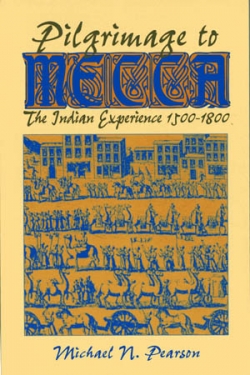 For over a thousand years, tens and hundreds of thousands of Muslim Indians have been making the pilgrimage to Mecca, the annual Hajj. In the early modern period, they followed a route over the Indian Ocean, producing an entanglement of politics, trade, and religion. Mughal rulers financed the Hajj for their subjects and also used it to send rebellious wives and scholars into exile; the Portuguese navy pirated pilgrim and merchant vessels bound for Mecca, killing passengers and crew members, taking hostages, and robbing and extorting transfer permits to Mecca, all in the name of Christianity. Sunni pilgrims from India using the land route were also harassed by Shiite rulers in Persia, but Mamluks and Ottomans tried to protect pilgrim caravans from predatory Bedouins. In Mecca, “donations” were demanded by some sharifs, local merchants excluded “infidels” from trade, and pilgrims tried to earn money by selling off wares from home.
For over a thousand years, tens and hundreds of thousands of Muslim Indians have been making the pilgrimage to Mecca, the annual Hajj. In the early modern period, they followed a route over the Indian Ocean, producing an entanglement of politics, trade, and religion. Mughal rulers financed the Hajj for their subjects and also used it to send rebellious wives and scholars into exile; the Portuguese navy pirated pilgrim and merchant vessels bound for Mecca, killing passengers and crew members, taking hostages, and robbing and extorting transfer permits to Mecca, all in the name of Christianity. Sunni pilgrims from India using the land route were also harassed by Shiite rulers in Persia, but Mamluks and Ottomans tried to protect pilgrim caravans from predatory Bedouins. In Mecca, “donations” were demanded by some sharifs, local merchants excluded “infidels” from trade, and pilgrims tried to earn money by selling off wares from home.
It is against this backdrop that Michael N. Pearson explores the Hajj. He discusses the motivation and experience of those Indian Muslims who undertook it and closely analyzes the political and economic dimensions. This groundbreaking book reveals the vital importance of the Hajj for Islamic and world history, as well as that of the Indian Ocean.
